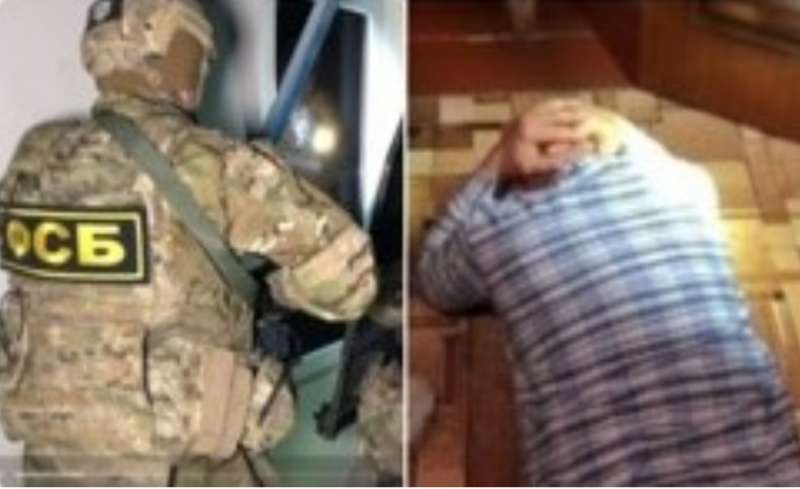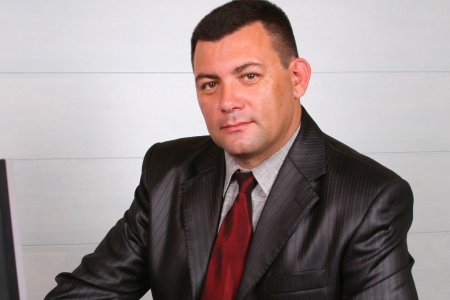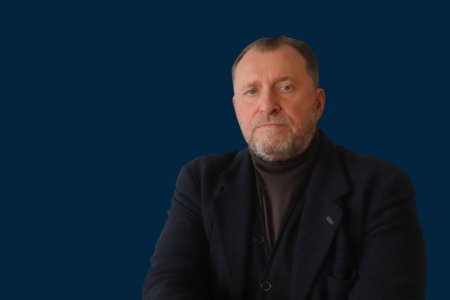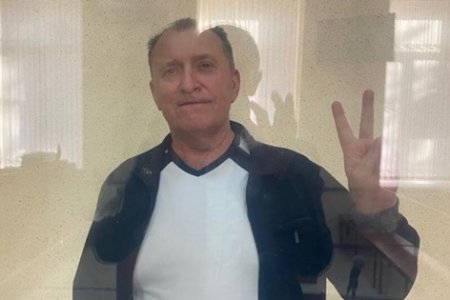
Over two years after Akim Gafarov was abducted by Russian soldiers from his home in Kherson oblast, the 58-year-old Crimean Tatar has been sent to a prison in Russia. So-called ‘courts’ in occupied Crimea were willing to ignore the legal absurdity of the charges against him while the second overturned a milder sentence because of Gafarov’s age and serious health issues in reprisal for his refusal to admit to the nonsensical charges.
Gafarov is originally from Crimea but moved to Kherson oblast in 2016 after harassment from the occupation ‘police’. Then came Russia’s full-scale invasion, and Novooleksiivka fell under Russian control. He was abducted by the invaders in May 2022, and was later taken to occupied Crimea and held prisoner in SIZO No. 2, one of two remand prisons opened in occupied Crimea in part to hold the Ukrainians abducted from other parts of Ukraine.
On 24 June 2022 he was illegally charged, under Russian legislation, with involvement in the Noman Çelebicihan Battalion. Despite its name, this was a non-violent and civil organization. It was also active, and entirely legal, in mainland Ukraine, and Russia is in clear and flagrant violation, not only of international law, but of fundamental principles of law in bringing preposterous charges under its legislation. The charge was under Article 208 § 2 of Russia’s criminal code (“participation in the activities of an unlawful armed formation acting on the territory of a foreign country for purposes which are against the interests of the Russian Federation”.)
Although Russia began persecuting Crimean Tatars on charges of ‘involvement’ in the Noman Çelebicihan Battalion from 2018, the number of victims was relatively small for the first three years. After Russia’s full-scale invasion of Ukraine, the charge became widely used as pretext for the invaders’ abduction of Ukrainians, especially from occupied parts of Kherson oblast.
The Noman Çelebicihan Battalion was founded at the beginning of January 2016 by Crimean Tatar activist and businessman Lenur Islyamov. The first members were people who had taken part in the civic blockade of occupied Crimea, a legitimate initiative with human rights demands, such as Russia’s release of Ukrainian political prisoners and freedom of speech in occupied Crimea. The Battalion’s ultimate objective was an end to Russian occupation, but Russia’s attempt to present it as an illegal armed formation are entirely false. By 1 June 2022, when Russia’s Supreme court labelled the peaceful formation ‘a terrorist organization’, the Battalion had effectively ceased to exist. This has not prevented such persecution, with the supreme court ruling enabling Russia’s FSB to generate multiple prosecutions without any evidence of an actual crime. No proof is needed even of genuine involvement in the Battalion as Russia uses anonymous ‘witnesses’ whose identity is concealed and who may never have set eyes on the person charged.
Although the feared escalation of sentences after the supreme court ruling has not yet emerged, ‘convictions’ and prison sentences are essentially guaranteed. The sentences do, however, differ widely in length, with this seeming to have little to do with specific allegations, and nothing to do with the amount of ‘evidence’. While that against Akim Gafarov is not the worst, it is brutal, given his age and state of health.
Gafarov had been illegally imprisoned since May 2022, however his ‘trial’ only began at the beginning of 2024 at the occupation ‘Kievsky district court’ in Simferopol. He was sentenced on 22 May by ‘judge’ Oksana Karchevskaya to five years’ maximum-security imprisonment, including three years in a prison, the worst of Russian penal institutions. While even a sentence of five years is shocking given the illegality of the charges, it was lower because Karchevskaya had, at least taken into account Gafarov’s age and chronic illnesses,
It was, however, challenged by ‘prosecutor’ Gulnara Ibragimova, with the occupation ‘Crimean high court’ on 8 August changing it to eight years. The argument for this would appear to have been that his illnesses were not bad enough and he had not admitted his supposed ‘crime’.
In noting the violation of international law around Gafarov’s persecution, Tribunal – Crimean Episode named several key players. ‘Prosecutors’ Dilyara Ametova; Yekaterina Timoshitskaya and Gulnara Ibragimova were, it said, opening a new chapter of their career as war criminals; while ‘judges’ Oksana Karchevskaya; Dmitry Mikhailov; Yelena Yeletskykh and Yuri Latynin had added yet another criminal episode to their already tainted dossier.
Although the prosecution often resorts to entirely false claims that men took part in ‘military training’, carried weapons, etc., the sentence passed by Karchevskaya makes it clear that the charges were of openly innocuous behaviour. Gafarov was alleged to have taken part in the Battalion’s activities; carried out functional duties; etc.
In ‘court’, Gafarov denied any guilt, while asserting that any role in the Battalion had been purely sundry repairs, practical work, and sheep grazing. Karchevskaya, however, relied upon the ‘testimony’ of FSB officers, as well as of three Crimean Tatars who had previously been convicted of the same charges and who were very likely to have given it under duress. One of these ‘witnesses for the prosecution’ was Seit-Ibragim Zaitullaev, a very young man, whose ‘arrest’ on charges linked with the Battalion and supposed ‘sabotage’ was first reported in February 2017. There were strong grounds for concern about the likely torture he had faced back then, and it is of major concern that he has now been used as a supposed prosecution witness in the political ‘trials’ of Medzhyt Ablyamitov; Oleksiy Kiselyov, former commander of the Ukrainian Navy’s Slavutych Command Ship and Lenur Islyamov.



